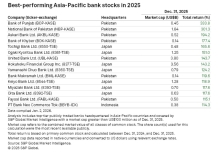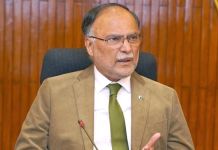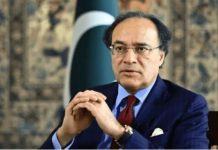ISLAMABAD, APR 5: Former President of the Islamabad Chamber of Commerce and Industry (ICCI), Dr. Shahid Rasheed Butt said on Friday that Pakistan badly needs International Monetary Fund (IMF) programme to remain afloat. Pakistan cannot survive without the IMF programme.
However, he noted that without changes in all significant areas, such as taxes, energy, and the agriculture sector, a fresh loan from the IMF would not fix the problems but delay the economic doomsday scenario.
In a statement released here today, Shahid Rasheed Butt claimed that wagering on the IMF is a serious fallacy.
Our economic managers need to understand that the IMF’s primary role is to guarantee that the nation can continue to meet its financial obligations and that it is the managers’ job to reform the economy and spur growth.
Pakistan needs an indigenous solution to escape its ongoing economic crisis, which calls for a reduction in the role of bureaucracy.
According to Shahid Rasheed Butt, in order to spur growth, the permission mafia’s role should be reduced and the tax system should be made simpler.
The business leader said that thorough deregulation is required to realise economic potential fully; otherwise, investors would continue to favour unproductive sectors.
Reduced regulatory requirements for companies will allow people in the business world to freely consider expansion and innovation, as a significant portion of industrialists’ energies and resources are currently directed towards complying with regulations, he stated.
In Pakistan, tax evasion is a common practice due to the high rates and difficulty of tax compliance. However, things can be changed permanently with streamlined procedures and consistent taxation across all sectors.
The only option left to the state organs is to raise prices, which negatively affects both production and the public because they have been unable to curtail corruption and inefficiency in the energy industry.
He said that increasing tax rates on the current taxpayer pool while disregarding those who are not in the system is a bad strategy that will never allow the economy to escape the IMF’s control.
Real changes that involve reducing regulations and uniformly taxing all income levels would remain unattainable, and the economy would stay stuck in a low-growth trap until significant political stability is attained.
He, therefore insisted that there be more communication amongst all political parties.

















